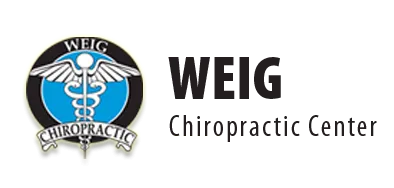Herniated Disc Symptoms
Herniated discs can occur anywhere in the back or neck, causing pain, numbness and other symptoms in the back and neck, as well as radiating symptoms in the limbs. Without proper care, a herniated disc can eventually result in muscle weakness and atrophy, impairing your ability to perform even simple movements. Seeing a chiropractor at the first sign or pain or other symptoms is the best way to relieve symptoms and prevent long-term problems.

What is a herniated disc?
The spine is made up of a series of bones or vertebrae, separated by spongy structures called discs. Each disc is made of a tough outer layer called the annulus fibrosus and a gel-like center called the nucleus pulposus. The discs help keep the spine flexible and they also act as shock absorbers to help prevent damage. Sometimes, a disc slips out of its normal position, becoming pinched or compressed by the vertebrae. As compression increases, the herniated disc can rupture, leaking some of the gel interior and causing significant nerve irritation.
What causes herniated discs?
Herniated discs are more common among people who are obese, women who are pregnant, people with poor posture and people who spend a lot of time standing or sitting. Discs can also become herniated as a result of repetitive bending or lifting heavy objects. Sometimes, a disc can become herniated following an accident like a car accident or a fall. And sometimes, a spine-related condition like spondylolisthesis or scoliosis also can cause a disc to become herniated.
What symptoms are caused by a herniated disc?
Herniated discs can cause pain and aching in the back or neck near the affected disc, and they can also cause symptoms like pain, numbness, and tingling anywhere along the nerve pathway. In severe cases, muscle weakness can also occur, and grip strength or gait may be altered.
How are herniated discs treated?
Herniated disc treatment starts with an exam to identify the disc that’s causing symptoms and to rule out other possible causes of pain. In some cases, the chiropractor may order X-rays to provide more information about the spine. Spinal adjustments can be very useful in treating herniated discs, realigning the vertebrae and helping discs resume their normal positions. Spinal decompression and therapeutic exercises are also helpful in promoting circulation and healing, while also restoring mobility and flexibility in the spine. And finally, the chiropractor will provide lifestyle guidance to help relieve symptoms and prevent symptoms from recurring.
What is spinal decompression?
Spinal decompression uses controlled traction to gently stretch the spine, helping discs move back into their proper positions while also improving circulation and flooding the tissues with nutrients needed for optimal healing. During treatment, you’ll lie on a special computer-controlled traction table. The table moves in specific ways to stretch and relax the spine during a 15- to 20-minute treatment. Most patients benefit from a series of treatments performed over a few weeks.
Schedule an Appointment with our Charlotte Chiropractor Today
Dr. Toby Weig is a top-rated chiropractor in Charlotte, NC, offering holistic, patient-centered care for herniated discs and their symptoms. If you’re suffering from back or neck pain or symptoms like chronic headaches, shoulder pain, or pain or numbness in the arms, legs, hands or feet, relief is just a phone call away. To schedule your consultation, call Weig Chiropractic Center at 704-594-3819 and take the first step toward feeling better and enjoying better health.
